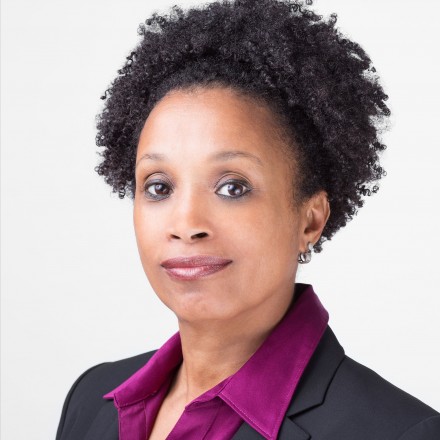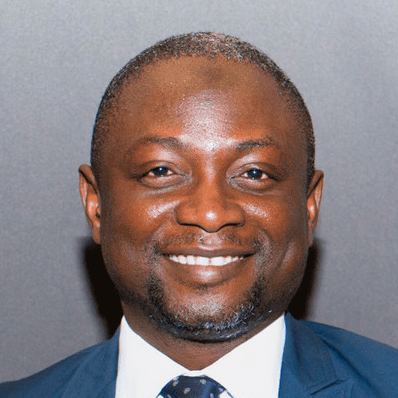Today, the HRPA recognizes Black Mental Health Day – an annual day declared by the City of Toronto and TAIBU Community Health Centre – to focus on the issues of anti-Black racism and its impact on mental health in Black communities.
It’s an opportunity to address barriers to access to culturally appropriate mental health services for Black Canadians, and drive the dialogue needed for real systemic change.
The HRPA spoke with Ingrid Wilson, CHRL, CMS, GridFern Strategic, Senior HR Executive & DEI Strategist, and Idowu Nafiu, CHRL, Chartered MCIPD, Ottawa Salus, HR Manager, about the importance of a day dedicated to Black mental health.
Q: What does it mean to be a Black Canadian?
Ingrid: I think it’s understanding that Black Canadians don’t all have the same experiences. Even though I’m a Black woman, I have a unique background and culture that makes up who I am. I also know that I may have some privileges other Black people don’t have.
It’s also recognizing that while we bring unique experiences to the table, as part of a visible minority we still face this system of racism and oppression in Canada. Systemic racism is built into everything: our police force, our schools, our government, our healthcare system. These institutions have been built into this box that caters to one group of people. We often can’t fit into this box and are then left out of the conversation.
With this in mind, I think it’s important for all Canadians to understand our broad history which includes slavery. As Jean Augustine famously said, “This is not Black history. This is Canadian history.”
Idowu: Black Canadians are not a homogenous group. For example, there are new Canadians, first-generation and second-generation Black Canadians. We have to look at this concept of intergenerational trauma. As a Black man, I do see differences in how racism has impacted Black individuals. Our experiences are super varied.
Right now, I think it’s worrying that people are still being treated differently based on the colour of their skin and all those other physical characteristics that don’t have anything to do with the value of who they are as a person.
On the flip side, I remain optimistic because of the higher level of awareness of these issues and the technology that has allowed us to capture many racially-related events. I think we’re at a turning point.
Q: How have recent events (including the anti-racism protests and COVID-19) affected you as a Black Canadian?
Ingrid: Honestly, there’s a lot of heaviness in the air. There’s a lot of “Black fatigue.” In 2020, there was this great push for White people to explain why we’re all so upset about George Floyd. The social media movement was great because it increased the awareness of racial injustice but it also intensified racial trauma for many Black people who had been sought out to talk about it too. As a consultant in the D&I space right now, I know that it sometimes requires a considerable amount of energy to explain to clients why certain programs or structures are not inclusive.
Then there’s the pandemic. It’s emphasized the health inequities and barriers that still exist for Black people. Black people are overrepresented in front line work, which means on top of everything else, they worry about their health and safety as well as their families.
Priorities based on Maslow’s Hierarchy of Needs are shifting. People are asking about whether they can provide for their families during this time.
All of this can make me feel very heavy sometimes.
Idowu: There’s no one I know that hasn’t been impacted by recent events and acts of racial violence. I have spoken to Black colleagues that are pulled over every other week, so this was already a tough reality to face. But it really hit home for me when I thought of my brother that lives in Minnesota, U.S. – knowing that he could have been really hurt by all of this was terrifying.
COVID-19 adds another layer particularly when we look at home ownership. Since the pandemic, job loss has meant that there are a disproportionate number of Black people experiencing homelessness, and poverty.
Additionally, Black people face barriers when it comes to mental health support. These are just some of the realities we see every day and that can take a toll on our wellbeing and our sense of worth.
Q: What is the significance of Black Mental Health Day to you?
Ingrid: Black Mental Health Day is part of Bill 178 and borne out of the Anti-Racism Act 2017. This day is significant because it’s happening the day after Black History Month and will be very different because of recent events. The other components of this Bill also require that the Ministry of Health and the Ministry of Long Term Care start collecting data on race.
There is a strong correlation between racism and mental health, and we see that it’s something that needs to be addressed for more than one day. We start with today, but to make real change we have to continue to move this forward.
Idowu: I think it’s a significant day to highlight the impact of racism against Black people.
Historically, the Black community has been very resilient having endured past injustices like slavery. But when we think of slavery and remember that the family structure was uprooted – a father, mother, children separated – what does mental health look like for all involved? Especially those children and those children’s children. This is the intergenerational trauma many Black people face. It’s not something that can be wished away.
In light of this, any recognition of the impacts on the mental health of Black Canadians is a step in the right direction.
Q: Why is it important to look at the intersectionality between anti-black racism and mental health?
Ingrid: Let’s look at one instance of where this is important: Over the last few years there has been an increase in depression and suicide rates among young Black men between the ages 18-29, in the GTA, due to a prevailing stigma in society: Black men can’t show any weakness.
Added to this is an overall distrust of police in the Black community. As an HR professional, who is also a certified Mental Health Practitioner, I am concerned about one of the usual protocols for dealing with someone in crisis, which is calling the police (and emergency services). Because imagine an officer at the door of a Black man who distrusts police. By showing up, that police officer may have reignited that Black man’s trauma.
With that in mind, instead of calling any officer, the best approach may be to look for resources within emergency services that support mental health.
At a recent Black History Month event that included the Halton Police Force, I suggested that all the police officers attending not wear their uniforms to mitigate racial trauma. This was impactful and a key reminder for the need to have more of these tough but honest conversations around mental health and systemic racism.
Idowu: It’s all in the data and the research: anti-Black racism, and systemic oppression affect the mental health of black people.
I read an article recently that indicated that due to factors like poverty, poor education, unemployment and criminalization, the mental wellbeing of African, Black and Caribbean Canadians has declined.
Continuing to assess the research and studies is necessary to talk about and should be the foundation for further discussions – not the ceiling.
Q: An annual day to highlight anti-Black racism’s negative effect on mental health in Black communities is a first step. What should HR professionals consider when it comes to improving mental well-being for people of colour? How can business leaders be better allies for their Black colleagues?
Ingrid: Are your Benefit plans flexible? Do they address the varied needs of different demographics and races? By not taking a hard look at Total Rewards, and other HR practices and organizational policies, you leave out a lot of people. It’s discrimination because it doesn’t ensure equitable access to promotions, for example. You penalize certain groups and races who do not then have the right to fair compensation to support themselves and in many cases, their loved ones too.
As HR professionals, we have to look at every system and understand that it can’t just stop at “school-book learning.” Rather we must stop, slow down, be self-aware and listen to what other people are saying. Really, really listen. And look at the impacts and audit our processes to see what we’re really doing when it comes to equity, inclusion and diversity in the workplace.
Idowu: As an HR professional working within the mental health and addictions space, I always ask questions. But leaders must be ready to listen to the answers. Leaders must be at a point where they want to have those difficult conversations. They must be willing to admit that they don’t know the answer and include those people that have had that lived experience in the discussion. That is the core of allyship. That is the first step.
The second step is when those answers come up, leaders must be willing to act on them, however uncomfortable it may be.
In the same way, HR leaders must make sure that EDI remains top-of mind at their organizations and is embedded in all policies and structures within the workplace.
I think at that point, when we are willing to find the answers that we are looking for and be bold enough to take steps towards acting on those answers – that’s when we can truly begin tackling anti-Black racism.
**Responses have been edited for clarity and length.
Interviewee Bios:

Ingrid Wilson
CHRL, CMS, GridFern Strategic HR, Senior Human Resources Executive & Diversity, Inclusion and Equity Strategist
Ingrid Wilson is an accomplished senior executive with almost 30 years of experience in corporate human resources, board, and business strategy. She has organizational experience with non-for-profit, public sector, private and public companies, in regulatory environments, with global expertise working for organizations with diverse operations, including the US and Europe. She is a strategic partner and trusted advisor to boards; CEOs and senior executive leaders building high performing teams focused on achieving the strategic goals of the organization in transformational and growth environments. Her subject matter expertise is in Organizational Development and Re-alignment Strategies; Culture Transformation and Change Management programs; Diversity, Equity and Inclusion strategies and program development, Inclusive Talent Management Strategies and Strategic Human Resources and Board Strategic Practices.
Ingrid Wilson has a deep knowledge and understanding of Diversity, Equity, Inclusion and Accessibility (DEIA) and expertise in developing and executing on Corporate DEIA strategies through inclusive Talent Management and Leadership Development programs, Psychological Safety and Wellness Programs, Employee Engagement and Accessibility and Learning strategies to eliminate systemic issues and physical and technological barriers to foster an inclusive and safe and respectful work environment. Ingrid is also a recognized speaker and panelist on the topics of Systemic Racism and Unconscious Bias. Ingrid conducts in-house corporate training and leadership development for organizations related to people engagement strategies and related areas of development. She is a certified mediator and trained facilitator and has facilitated board and leadership sessions and focus groups for youth organizations working with vulnerable and marginalized communities. Ingrid also currently volunteers as a Mentor in the C-Suite Mentorship program for Black Mentorship Inc, with the Sheridan College for the Career Conversation Series: Black Leadership, Ambition, Collective Knowledge & Success career readiness program and as a Mentor in the Ryerson Human Resources Student Association’s HR mentorship program Rotman School of Management. Ingrid also serves on the HR Advisory Group for Executive Development programs focused on HR Leaders at Rotman School of Management, University of Toronto.

Idowu Nafiu
CHRL, Chartered MCIPD, Ottawa Salus, Human Resources Manager
Irowu Nafiu is an experienced Human Resources professional working within the mental health and addictions space.
He draws on his expertise and skills help global organizations in Financial Services and International Development to deliver Human Resources programs and solutions covering Recruitment/resourcing, Change Management, Performance Management and Organization Design and Development, Learning and Development, Talent Management, Project Management, Business Process Re-engineering, Operations Management, HR Consulting and Administration.
Currently, Irowu Nafiu is a Human Resources Manager at Ottawa Salus, where he leads in the development, implementation, and management of human resources programs. He also provides expertise in recruiting, staffing, compensation and benefits, training and leadership development, performance management processes, policies and procedures, labour relations, and other sensitive employee issues and concerns.
He is a Certified Human Resources Professional (CHRL) and is a Chartered Member of the Chartered Institute of Personnel and Development (Chartered MCIPD).

Ingrid Wilson
CHRL, CMS, GridFern Strategic HR, Senior Human Resources Executive & Diversity, Inclusion and Equity Strategist
Ingrid Wilson is an accomplished senior executive with almost 30 years of experience in corporate human resources, board, and business strategy. She has organizational experience with non-for-profit, public sector, private and public companies, in regulatory environments, with global expertise working for organizations with diverse operations, including the US and Europe. She is a strategic partner and trusted advisor to boards; CEOs and senior executive leaders building high performing teams focused on achieving the strategic goals of the organization in transformational and growth environments. Her subject matter expertise is in Organizational Development and Re-alignment Strategies; Culture Transformation and Change Management programs; Diversity, Equity and Inclusion strategies and program development, Inclusive Talent Management Strategies and Strategic Human Resources and Board Strategic Practices.
Ingrid Wilson has a deep knowledge and understanding of Diversity, Equity, Inclusion and Accessibility (DEIA) and expertise in developing and executing on Corporate DEIA strategies through inclusive Talent Management and Leadership Development programs, Psychological Safety and Wellness Programs, Employee Engagement and Accessibility and Learning strategies to eliminate systemic issues and physical and technological barriers to foster an inclusive and safe and respectful work environment. Ingrid is also a recognized speaker and panelist on the topics of Systemic Racism and Unconscious Bias. Ingrid conducts in-house corporate training and leadership development for organizations related to people engagement strategies and related areas of development. She is a certified mediator and trained facilitator and has facilitated board and leadership sessions and focus groups for youth organizations working with vulnerable and marginalized communities. Ingrid also currently volunteers as a Mentor in the C-Suite Mentorship program for Black Mentorship Inc, with the Sheridan College for the Career Conversation Series: Black Leadership, Ambition, Collective Knowledge & Success career readiness program and as a Mentor in the Ryerson Human Resources Student Association’s HR mentorship program Rotman School of Management. Ingrid also serves on the HR Advisory Group for Executive Development programs focused on HR Leaders at Rotman School of Management, University of Toronto.

Idowu Nafiu
CHRL, Chartered MCIPD, Ottawa Salus, Human Resources Manager
Irowu Nafiu is an experienced Human Resources professional working within the mental health and addictions space.
He draws on his expertise and skills help global organizations in Financial Services and International Development to deliver Human Resources programs and solutions covering Recruitment/resourcing, Change Management, Performance Management and Organization Design and Development, Learning and Development, Talent Management, Project Management, Business Process Re-engineering, Operations Management, HR Consulting and Administration.
Currently, Irowu Nafiu is a Human Resources Manager at Ottawa Salus, where he leads in the development, implementation, and management of human resources programs. He also provides expertise in recruiting, staffing, compensation and benefits, training and leadership development, performance management processes, policies and procedures, labour relations, and other sensitive employee issues and concerns.
He is a Certified Human Resources Professional (CHRL) and is a Chartered Member of the Chartered Institute of Personnel and Development (Chartered MCIPD).
